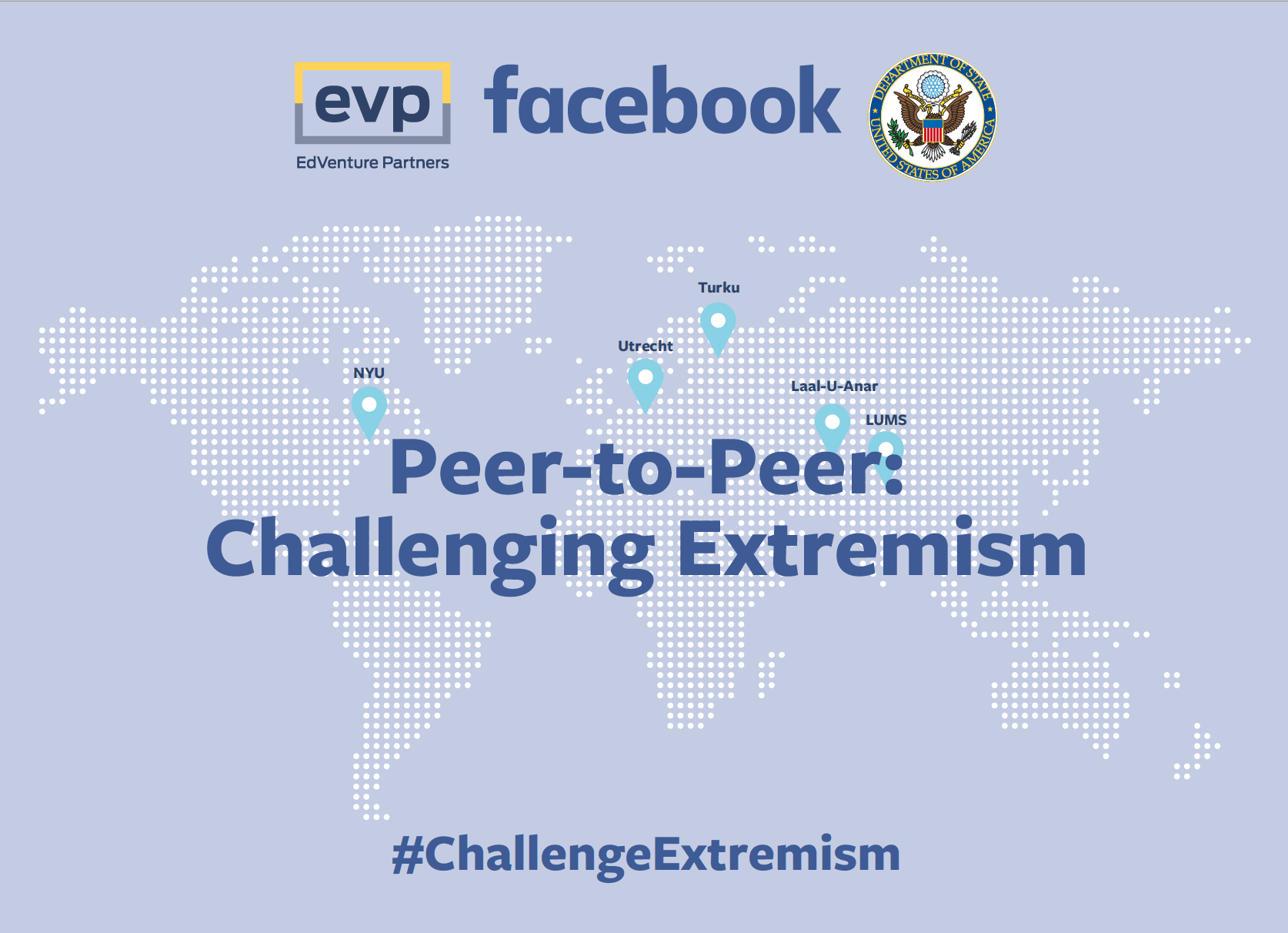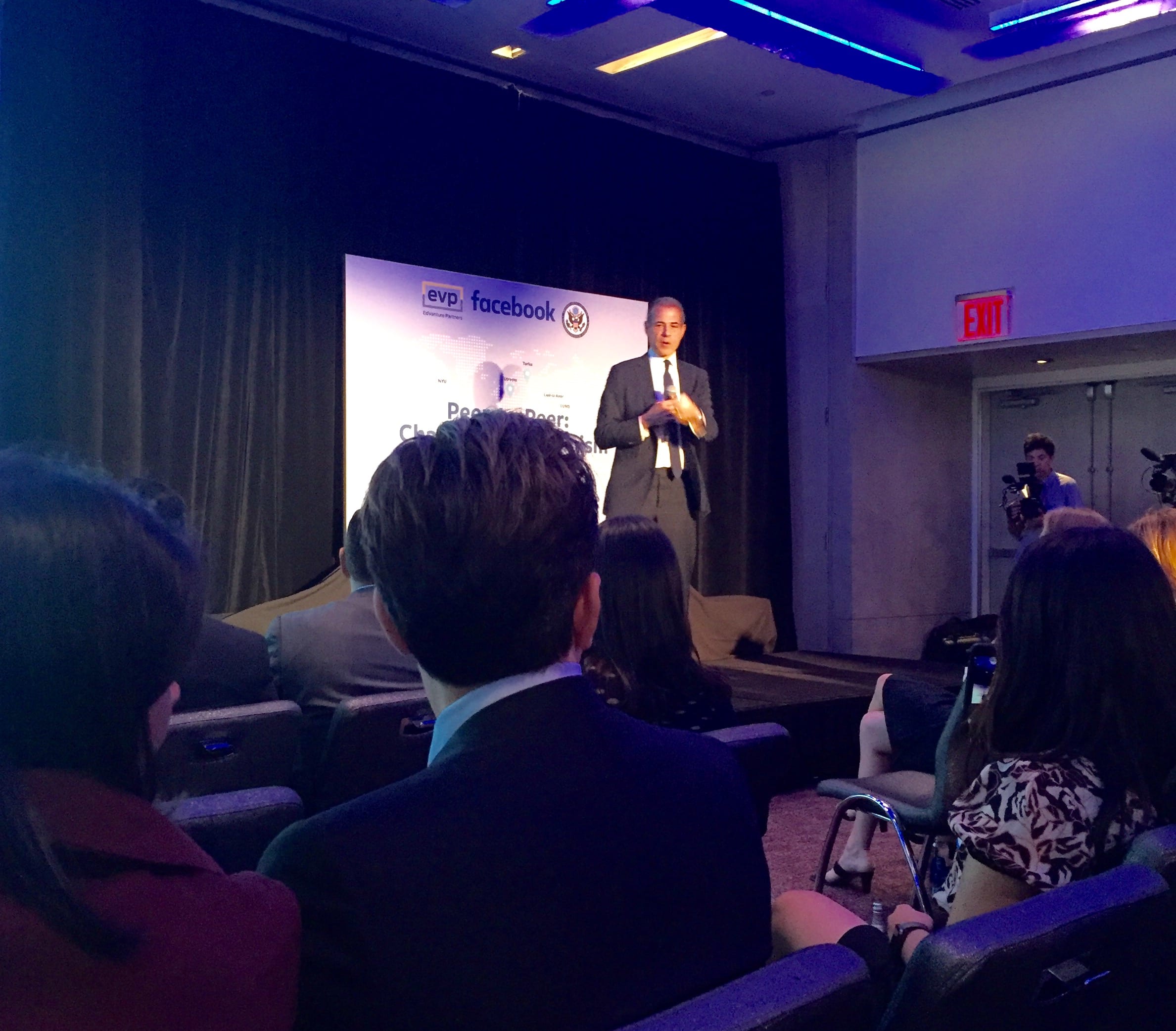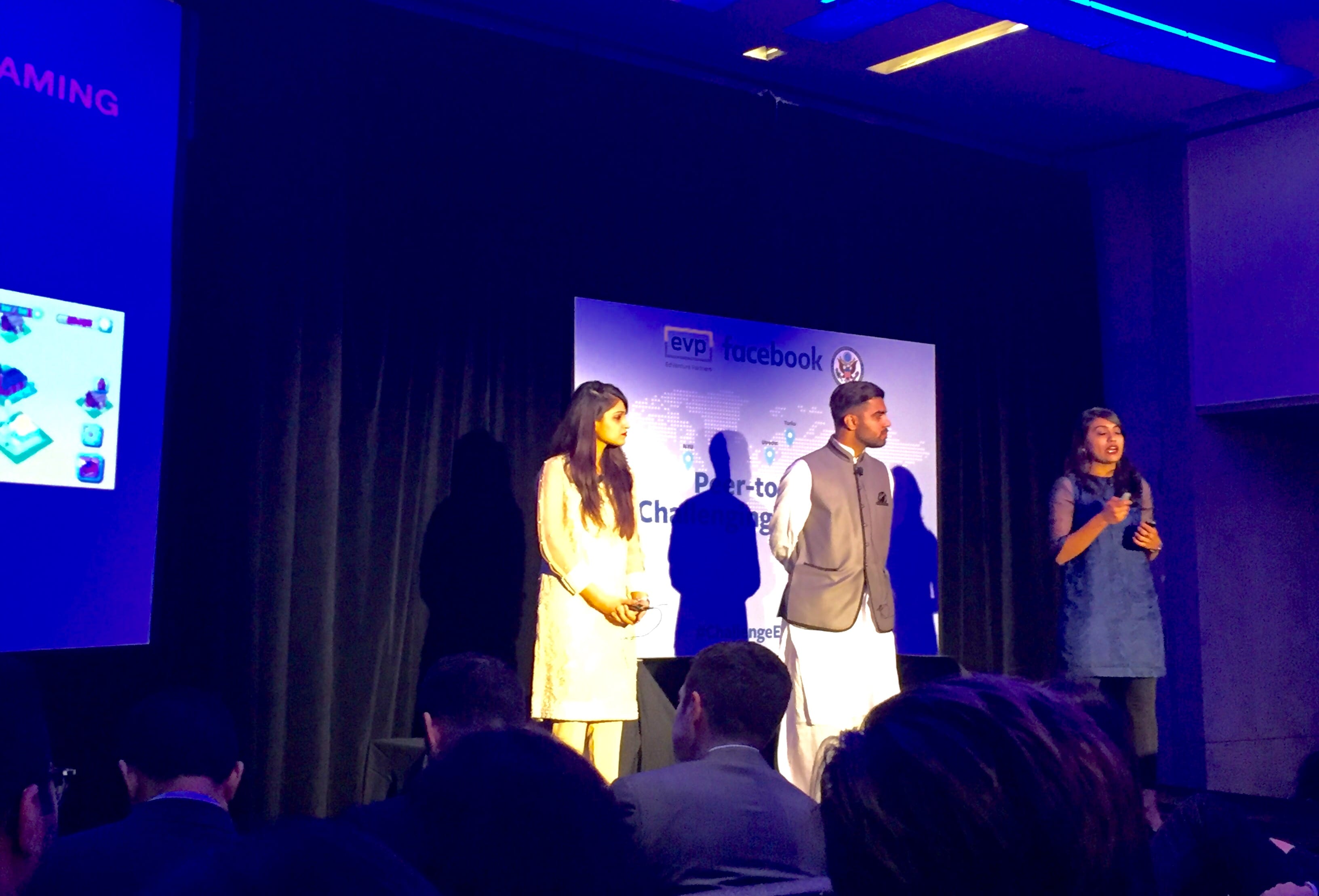
Peer-to-Peer: Challenging Extremism (P2P) is an innovative program that removes a hierarchical government approach to digital youth outreach. It does so by providing the resources for university students to creatively implement localized solutions that reach the target demographic: their own age group using their own preferred online platforms. On the International Day of Peace, September 21, regional winners from the U.S., Finland, Afghanistan, Pakistan, and the Netherlands, presented their creative digital outreach campaigns in New York City to encourage moderation and integration in communities plagued by online extremism, prejudice, and hate.
Keynote speakers from co-hosts Facebook, U.S. Department of State, and EdVenture Partners highlighted the rapid growth of the international P2P competition and ingenuity of the students. The program’s 250 universities across 60 countries have students work with $400 in Facebook Ad Credits and $2,000 budget for academic credit to research a target audience and then create a digital media initiative, tool, or product to counter online extremism. Under Secretary of State for Public Diplomacy and Public Affairs, Richard Stengel, described the program as the “model for public-private partnerships at State. We love this program because we get out of the way.” Head of Product Policy at Facebook, Monika Bickert, said the local and global campaigns are so inspiring because the students are responding to their environment, and they can thus develop effective solutions. Under Secretary Stengel reinforced this critical need to act upon understanding by elaborating on his media experience, “as a journalist, when I asked the wrong question, I got the wrong answer.” The following are brief summaries of how each winning team answered the “right” answer with their innovative solutions, with further details on their campaign sites.

All teams presented their strategic off and online, peer-driven campaigns that detailed design, implementation, and results. New York University’s conflict studies Masters students focused on diversity and integration processes based on teammates’ experiences feeling vulnerable as outsiders. They described how their campaigns evolved from the #7TrainStop on immigrants in Queens, into the Voices of New York Resolve on countering hate in Brooklyn, which will now focus on radicalization in Bronx prisons. The team has collaborated with local and international organizations to mutually support countering extremism goals, such as garnering 43, 831 Facebook views and 384,340 Youtube views on BuzzFeed-released, “When Hate Speech Comes to Campus.” [#7TrainStop]
The Turku School of Economics [Finland] and Utrecht University [Netherlands] concentrated on refugee integration. The Finnish team created a mobile application that addressed the ~1,000% increase in asylum-seekers entering Finland from 2014 to 2015. They identified four major problems refugees face: Lack of information on the city and country; Lack of contact with locals; Lack of activities in the reception center; and negative attitudes among the local population. Interestingly, these challenges are similar to those new students may encounter when moving to Turku. The team designed multimedia events to increase locals’ awareness, interest, and opinion of newcomers. “United by Food” was a day-long pop-up for refugees to sell food from their home country. “About Turku” made city information accessible by transforming pre-existing records into a free mobile download in Arabic and English. The Dutch team tackled the heated European political climate in “#DareToBeGrey: An Alternative to the Black & White Fallacy.” They created a humorous online series to raise awareness that it is possible to have a moderate stance on refugee intake. The online efforts combined with their recent five-city Dutch tour have reached over eight million people. Both campaigns give agency to Europeans and refugees through multimedia. [Choose Your Future] [#DareToBeGrey]

The Pakistani and Afghan teams focused on dispelling misuses of politicized Islam. The Afghan team from Laal-u-Anar Foundation identified TV and Facebook as the most wide-reaching outlets to defend their religion in #IslamSaysNoToExtremism while sharing Quranic verses that reinforced peacemaking messages. The Lahore University of Management Sciences project, “Fate: From Apathy to Empathy,” highlighted comprehensive programs to re-incentivize Pakistanis who felt they were “just a number” in the destruction and deaths from violent extremism. They countered the apathy by organizing concerts, tours, video games, activism workshops, and education programs to empower and humanize citizens. Both teams cite youth activation through media campaigns to promote moderate Islam to various demographics, as well as calling attention to a narrowing window of opportunity for effective counter-extremism. [International Strategic Studies] [Fate]
Event host, Dean Obeidallah, concluded by reinforcing the magnitude of violent extremism in Asia, explaining that “over 90% of victims of ISIL and al-Qaeda are Muslims, but the U.S. media doesn’t cover it so Americans don’t know.” Mr. Obeidallah paraphrased Robert F. Kennedy to encourage youth to recognize their potential and collaborate because “few of us alone can change and bend history, but together, collectively, we can write a narrative of our generation.” Indeed, a compelling, accessible narrative needs to be solidified to effectively counter various forms of extremism around the world, and the P2P program is leading the way.
[youtube https://www.youtube.com/watch?v=JilJithBoFU&w=560&h=315]

